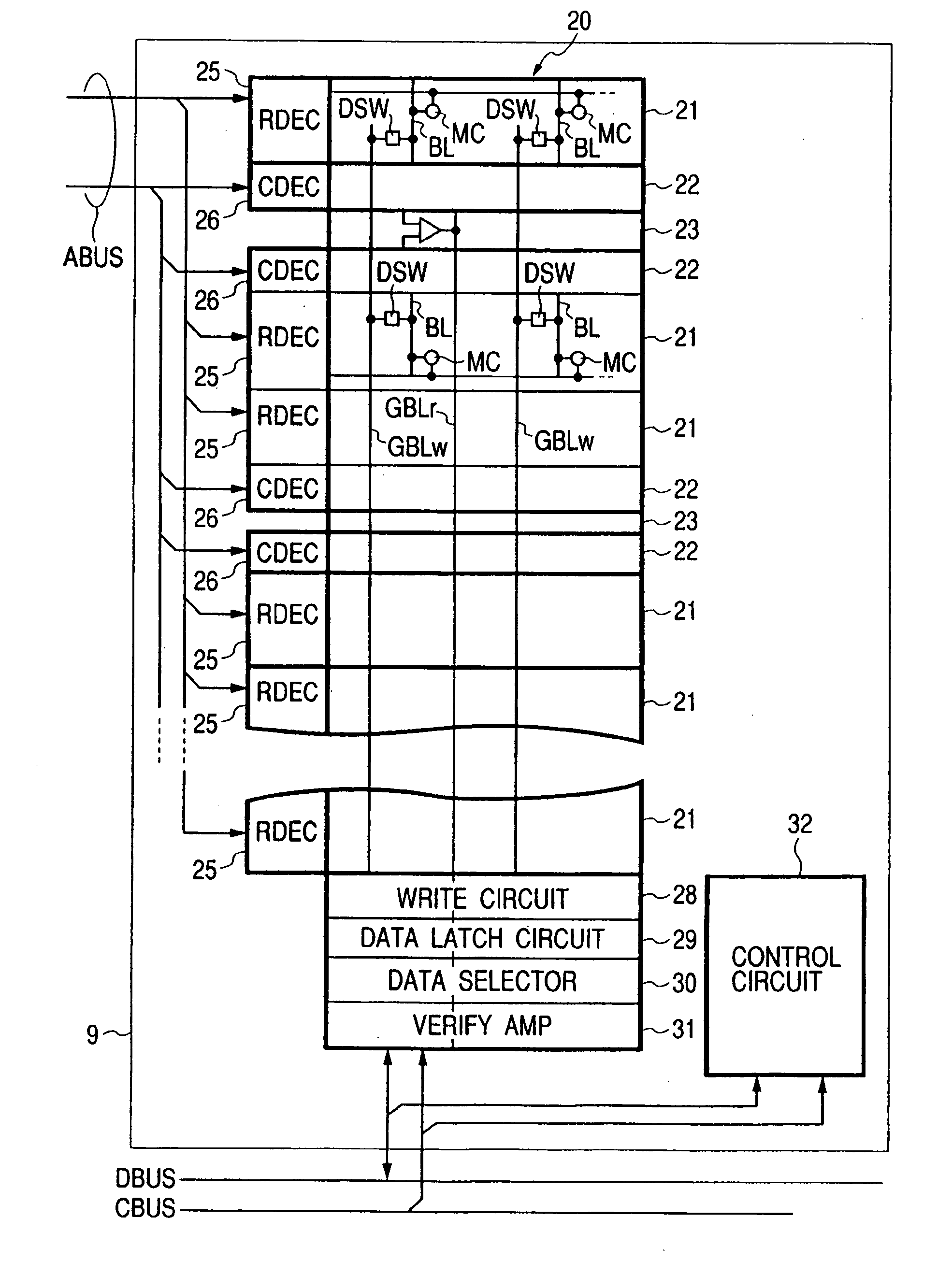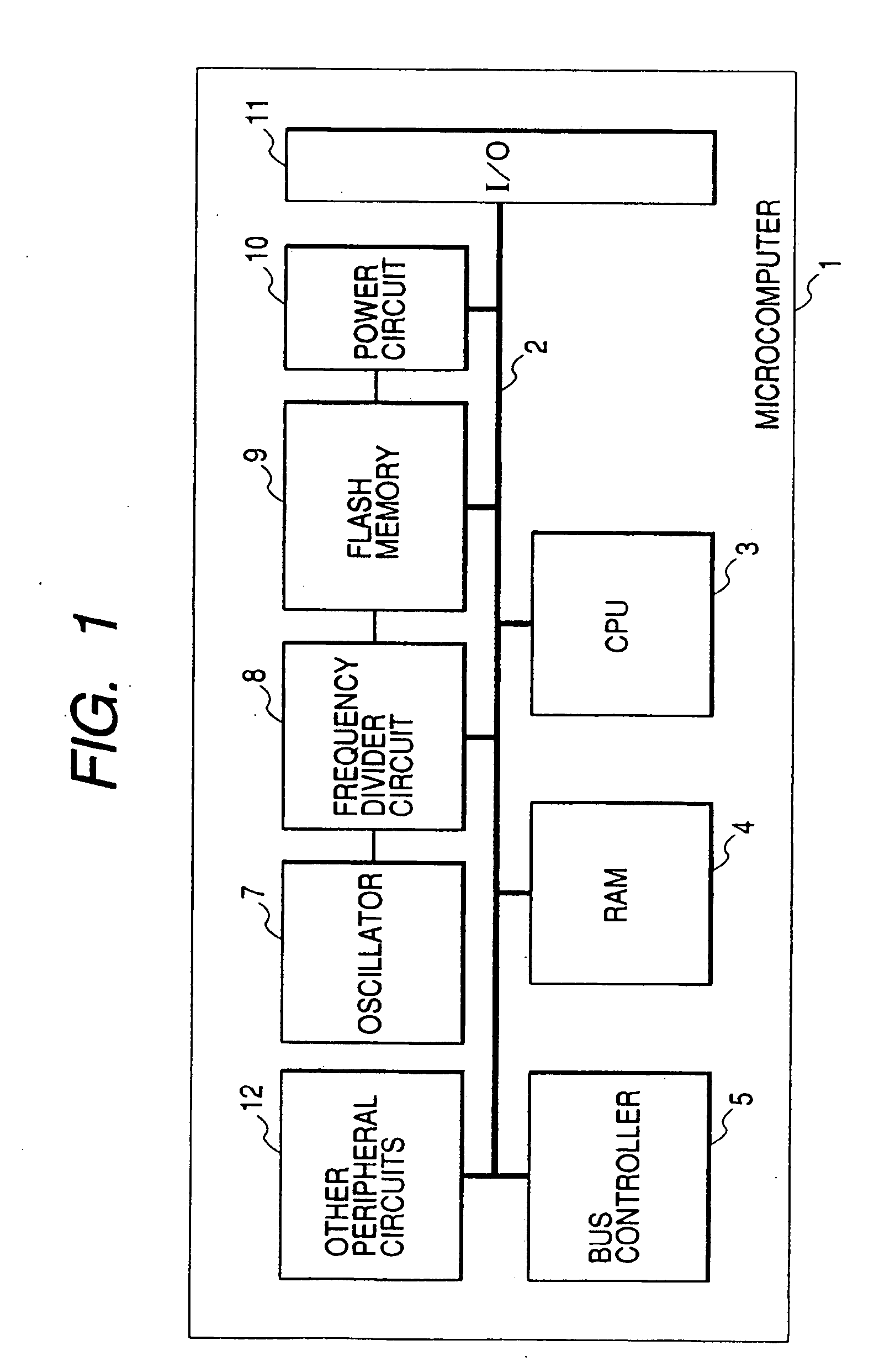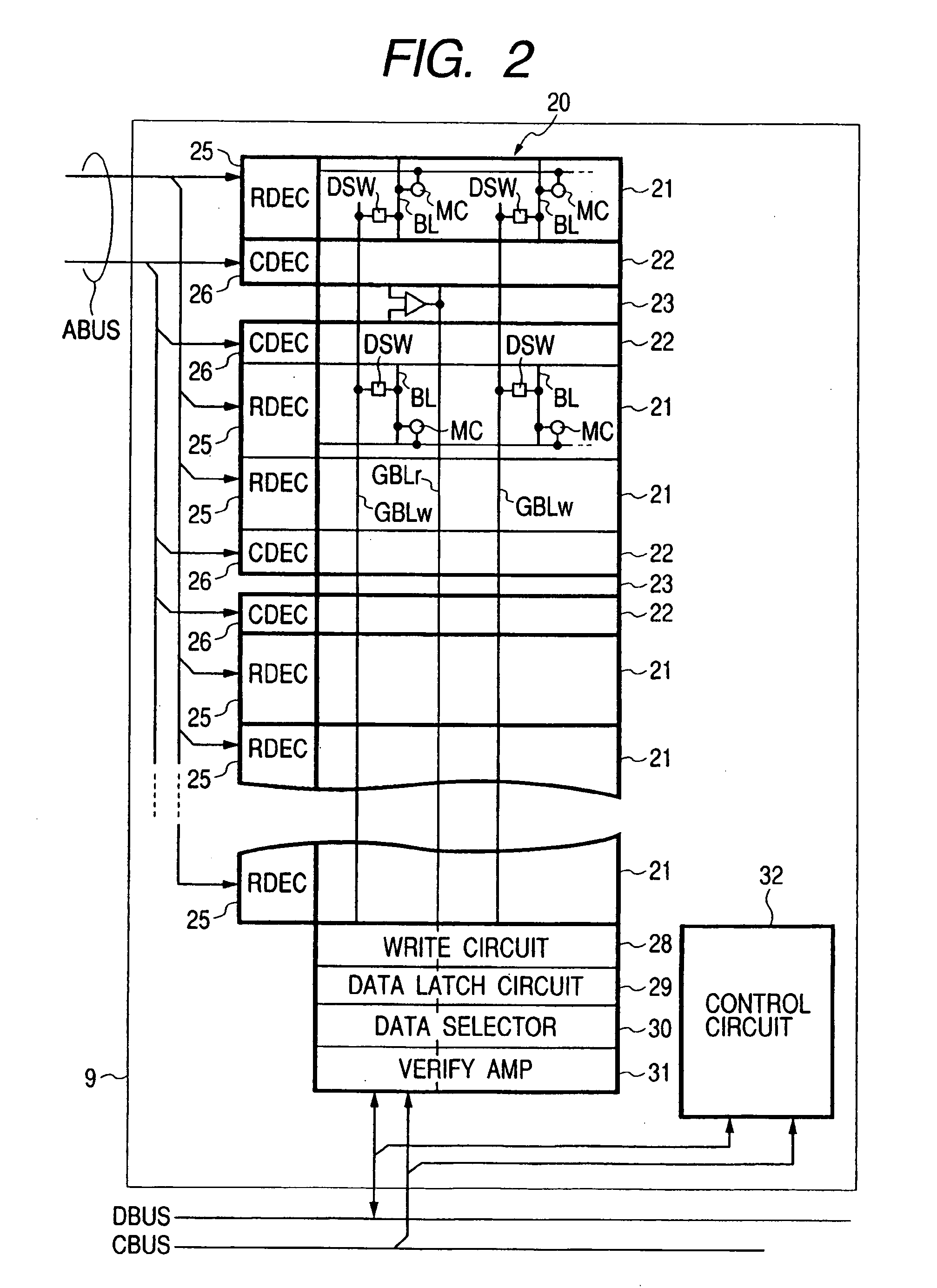Semiconductor device
a semiconductor and circuit technology, applied in the field of nonvolatile memory, can solve the problems of increasing the size of the circuit, unable to cope with the desire to increase the read speed, and the sub-bit line cannot solve the signal propagation delay, so as to reduce the input load capacity of the sense amp, increase the number of bit line selector circuits, and accelerate the read operation
- Summary
- Abstract
- Description
- Claims
- Application Information
AI Technical Summary
Benefits of technology
Problems solved by technology
Method used
Image
Examples
Embodiment Construction
[0069]
[0070]FIG. 1 illustrates a single-chip microcomputer called a data processor or a microprocessor as an example of a semiconductor integrated circuit according to the present invention.
[0071] The microcomputer shown in the drawing is not particularly limited and is formed over one semiconductor substrate (chip) such as a single crystal silicon by a known semiconductor integrated circuit fabrication technique.
[0072] A microcomputer 1 has, as a circuit module connected to an internal bus 2, a central processing unit (also indicated as a CPU) 3, a random access memory (also indicated as a RAM) used for a work area of the CPU 2, a bus controller 5, an oscillator 7, a frequency divider circuit 8, a flash memory 9, a power circuit 10, an input / output port (I / O) 11, and other peripheral circuits 12 such as a timer counter. The CPU 3 has a command control part and an execution part, decodes a fetched command and performs operation processing by the execution part according to the dec...
PUM
 Login to View More
Login to View More Abstract
Description
Claims
Application Information
 Login to View More
Login to View More - R&D
- Intellectual Property
- Life Sciences
- Materials
- Tech Scout
- Unparalleled Data Quality
- Higher Quality Content
- 60% Fewer Hallucinations
Browse by: Latest US Patents, China's latest patents, Technical Efficacy Thesaurus, Application Domain, Technology Topic, Popular Technical Reports.
© 2025 PatSnap. All rights reserved.Legal|Privacy policy|Modern Slavery Act Transparency Statement|Sitemap|About US| Contact US: help@patsnap.com



